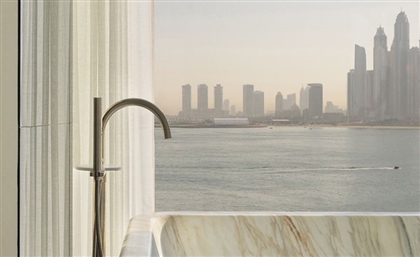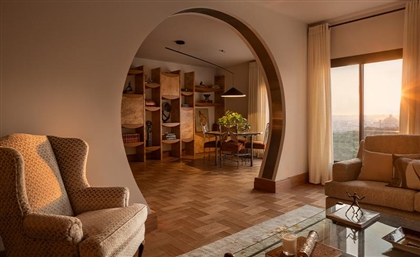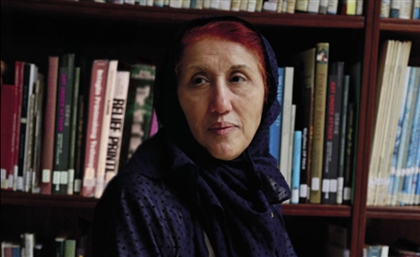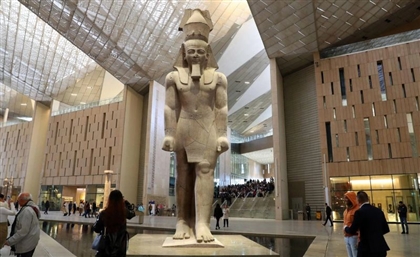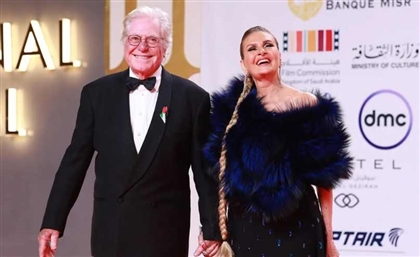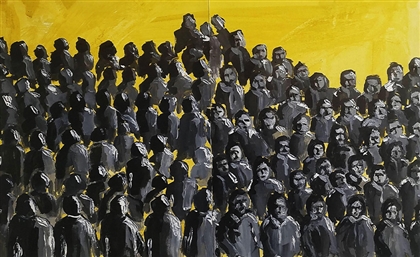Fathy Mahmoud’s Porcelain Legacy Finds the Spotlight
From sculptural artistry to robotic precision, Fathy Mahmoud’s porcelainware moves from legacy to public acclaim.
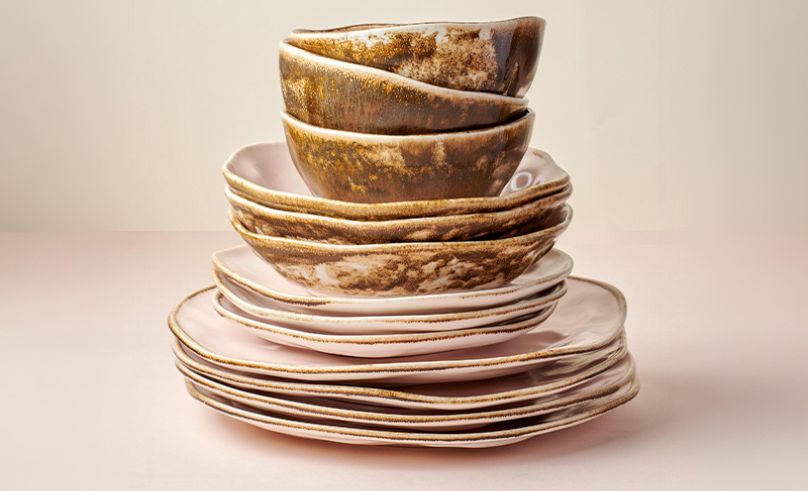
You might not know the name right away, but you’ve likely seen the mark - FM - pressed into the underside of a porcelain mug, or hidden beneath a floral dining set passed down through generations. Just below it, the words: Fine Egyptian Tableware. Simple, understated. But behind those initials lies the legacy of Fathy Mahmoud, a visionary sculptor who helped shape Egypt’s modern artistic identity.
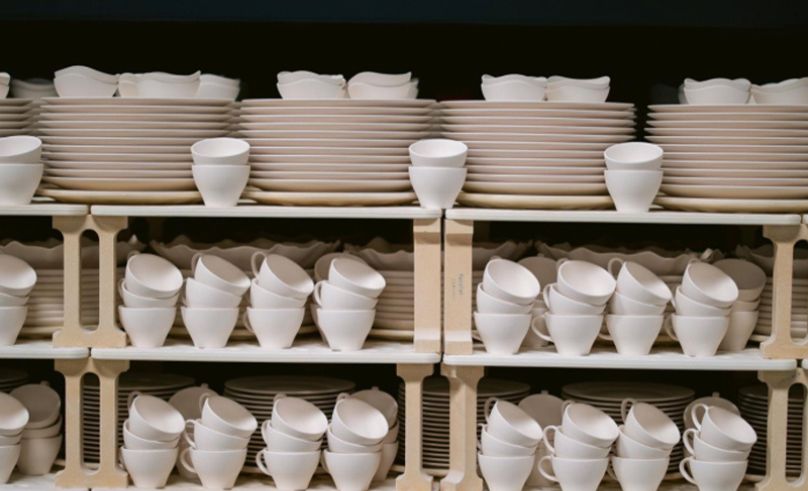 In the mid-20th century, Fathy Mahmoud imagined a future that extended beyond sculpture, one shaped in porcelain. From a small earthenware workshop tucked in Shubra, the industrious heart of Cairo, he laid the foundations for a porcelain factory that would be established in Alexandria, built with limited resources but boundless resolve. It was a bold, improbable undertaking.
In the mid-20th century, Fathy Mahmoud imagined a future that extended beyond sculpture, one shaped in porcelain. From a small earthenware workshop tucked in Shubra, the industrious heart of Cairo, he laid the foundations for a porcelain factory that would be established in Alexandria, built with limited resources but boundless resolve. It was a bold, improbable undertaking.
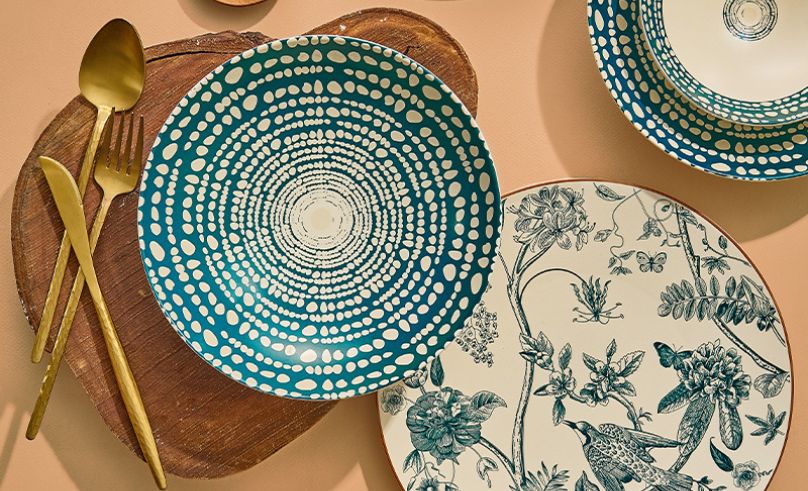 Yet just as the vision began to take shape, fate intervened. In 1982, Fathy Mahmoud passed away. His dream was left unfinished, left for his family to carry on. What followed was a quieter, more pragmatic chapter. The poetry of sculptural imagination gave way to the precision of craftsmanship. The factory gradually transformed into a beacon of refined technique and enduring quality — a place where artistry met function and state of the art technology.
Yet just as the vision began to take shape, fate intervened. In 1982, Fathy Mahmoud passed away. His dream was left unfinished, left for his family to carry on. What followed was a quieter, more pragmatic chapter. The poetry of sculptural imagination gave way to the precision of craftsmanship. The factory gradually transformed into a beacon of refined technique and enduring quality — a place where artistry met function and state of the art technology.
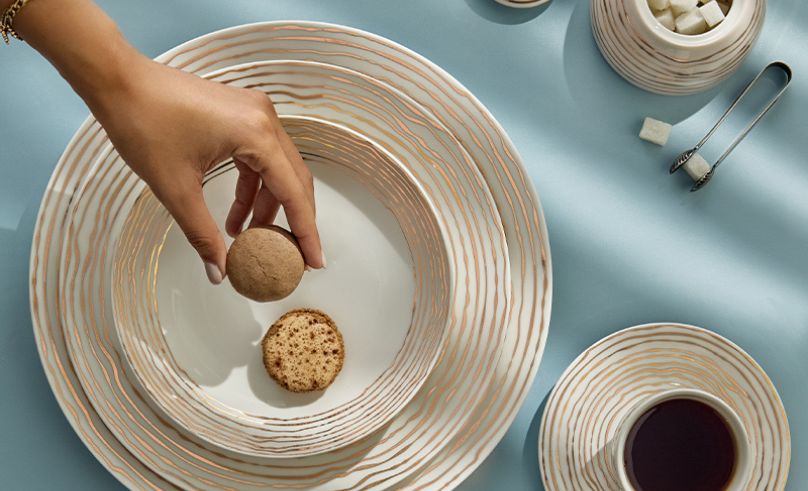 With a focus shifted toward perfecting methods, and expanding capacity, the brand remained largely behind the scenes for decades. Exporting silently, its name is absent from the spotlight, even as its porcelain graced homes across more than 55 countries with a production capacity of 7,000,000 pieces monthly.
With a focus shifted toward perfecting methods, and expanding capacity, the brand remained largely behind the scenes for decades. Exporting silently, its name is absent from the spotlight, even as its porcelain graced homes across more than 55 countries with a production capacity of 7,000,000 pieces monthly.
“Our factory is a bit like a time machine. The most primitive, hands-on methods of production still exist alongside state-of-the-art technology,” Mohamed Fathy, CEO of Retail at Fathy Mahmoud, tells SceneHome. “You’ll find molds crafted entirely by hand, delicate flowers painted with care, and pots and tureens cast manually, just as they were decades ago. At the same time, we use CNC machines for precision mold-making, isostatic presses, and pressure casting systems. It’s this rare mix of tradition and innovation, coexisting under one roof, that truly defines who we are.”
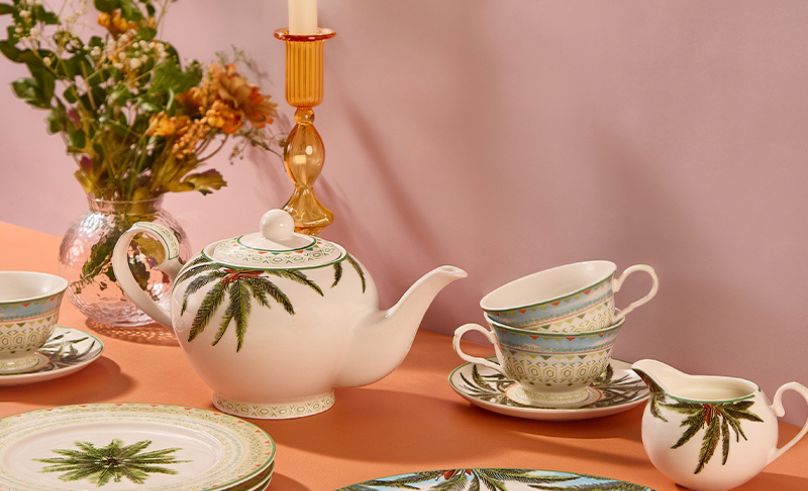 Shaped by a journey of continuous evolution and guided by the belief that art is for everyone — a philosophy immortalized in the artist’s iconic quote, “Art for the millions” — this ethos has long lingered in the background, subtly woven into the fabric of the brand and quietly informing its growth.
Shaped by a journey of continuous evolution and guided by the belief that art is for everyone — a philosophy immortalized in the artist’s iconic quote, “Art for the millions” — this ethos has long lingered in the background, subtly woven into the fabric of the brand and quietly informing its growth.
“I suppose you could say we’re an echo of an artist’s first gesture. His momentum carries on, still moving through us, still shaping what we do. Though he passed away when I was only a child, I still carry him in ways that feel deeply present,” Fathy explains. “That, to me, speaks volumes about the power of artists, not just to create beauty, but to reshape entire industries and influence the world far beyond their time.”
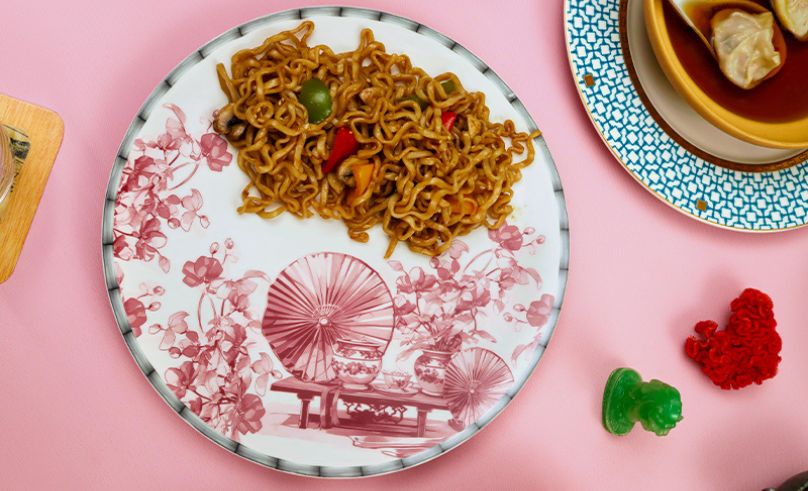 After years of working behind the scenes, the brand is now stepping into a new era. With its entry into the retail world, it begins to embrace its name more openly, bringing its craftsmanship directly to the public. This marks not just a shift, but a transformation, a quiet revolution in its business model, where B2B alone can no longer contain its vision.
After years of working behind the scenes, the brand is now stepping into a new era. With its entry into the retail world, it begins to embrace its name more openly, bringing its craftsmanship directly to the public. This marks not just a shift, but a transformation, a quiet revolution in its business model, where B2B alone can no longer contain its vision.
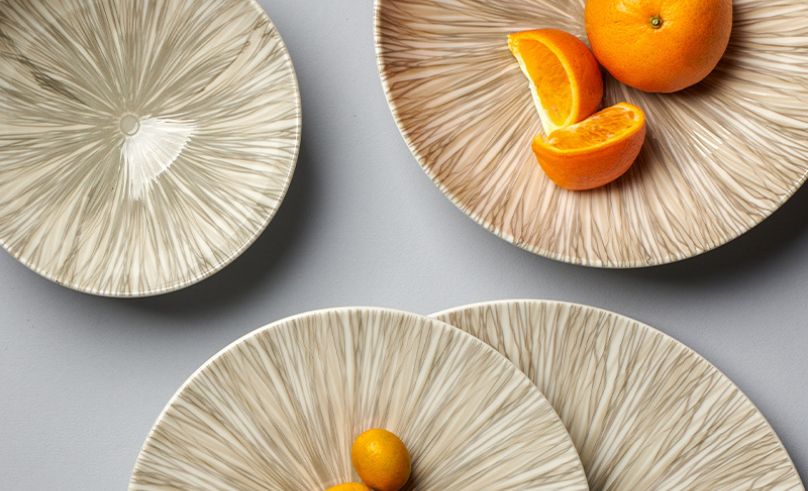 Like ripples in a still pond, this new direction reaches the core of the brand, cracking it open to new possibilities. It is an invitation to reimagine the future, to carry the name of Fathy Mahmoud not only through the excellence of its porcelain, but through a renewed commitment to creativity, accessibility, and imagination.
Like ripples in a still pond, this new direction reaches the core of the brand, cracking it open to new possibilities. It is an invitation to reimagine the future, to carry the name of Fathy Mahmoud not only through the excellence of its porcelain, but through a renewed commitment to creativity, accessibility, and imagination.
With two stores now open — one in Mall of Egypt and the other in City Centre Almaza — and a third on the horizon, Fathy Mahmoud is no longer just a name on the underside of porcelain. It's becoming a lived experience. These retail spaces are curated environments where heritage meets contemporary design, and the artistry of porcelain is brought to life in every detail.
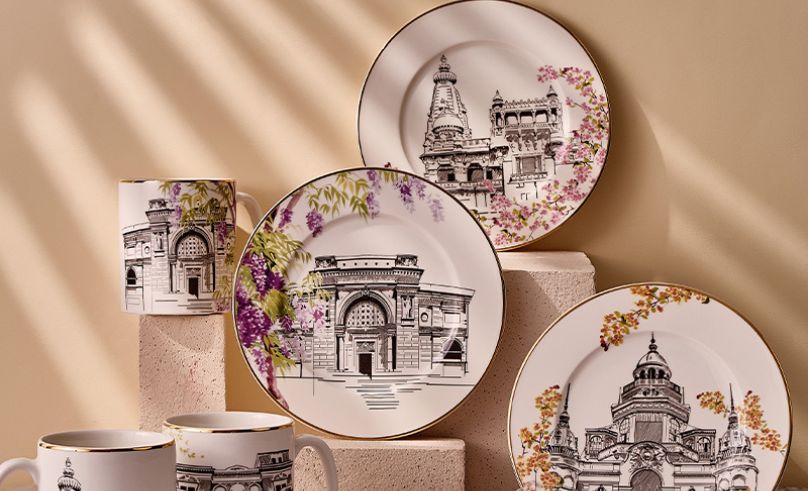 For some, it's an introduction. For others, a rediscovery. Younger audiences are finding something fresh and rooted, while older generations are seeing the brand anew, not just as a memory, but as a refined expression of design and identity, where the brand’s quiet legacy steps fully into view.
For some, it's an introduction. For others, a rediscovery. Younger audiences are finding something fresh and rooted, while older generations are seeing the brand anew, not just as a memory, but as a refined expression of design and identity, where the brand’s quiet legacy steps fully into view.
“Design was once important but not central to our approach,” Fathy said. “Today, we're transforming that mindset. We've established a creative department with designers from all over Egypt, and we're actively working to ensure that every piece we create reflects our local identity, with some exciting results already emerging.”
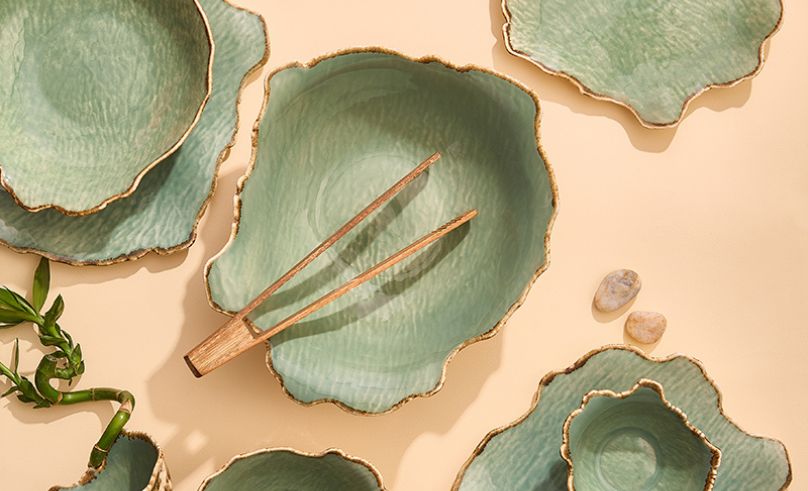 Drawing from both local traditions and global trends, FM’s designs today tell stories that resonate deeply with their audience. The Egyptian Buildings collection pays tribute to the architectural grandeur of the homeland, while Imaginarium speaks to a younger generation with its bold color palette and whimsical, imaginative spirit.
Drawing from both local traditions and global trends, FM’s designs today tell stories that resonate deeply with their audience. The Egyptian Buildings collection pays tribute to the architectural grandeur of the homeland, while Imaginarium speaks to a younger generation with its bold color palette and whimsical, imaginative spirit.
“What I want is for Egyptians to feel proud of the industry itself,” Fathy explains. “What we’ve built is significant. We are a behemoth in porcelain, not only in scale, but in the quality and precision of what we produce. These are world-class pieces, crafted from the finest materials sourced both locally and internationally.”
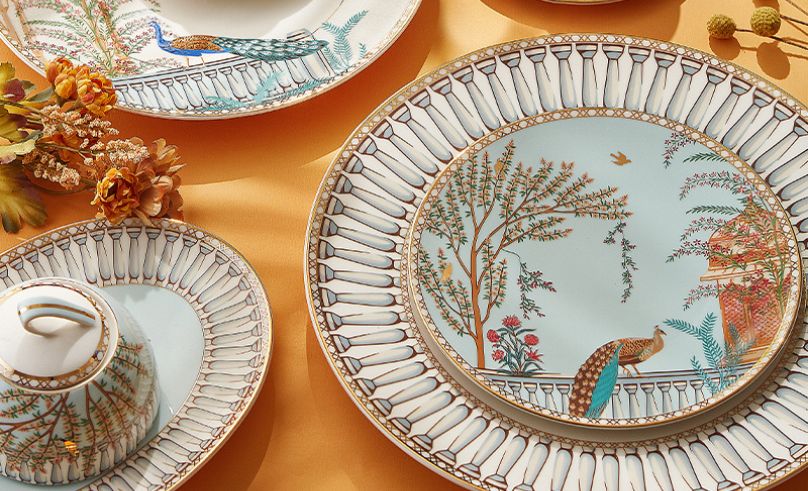 At the heart of it all is a return to Fathy Mahmoud — the influential Egyptian artist. A return that is both literal and metaphorical, as FM not only follows in his footsteps, but actively seeks to revive his artistic language through new porcelain designs.
At the heart of it all is a return to Fathy Mahmoud — the influential Egyptian artist. A return that is both literal and metaphorical, as FM not only follows in his footsteps, but actively seeks to revive his artistic language through new porcelain designs.
“We began revisiting his early work — not just as a tribute, but as a way to bring his work back to life. It’s no longer just about honoring a legacy. It’s about continuing it, thoughtfully and intentionally, through every piece we create.”
- Previous Article Meet the 12 Must-See Speakers at RiseUp Summit 2025
- Next Article District 5’s Newest Japanese Eatery is All About ‘Flavour over Excess’








